Ryanair will use a 40% SAF (sustainable aviation fuel) blend on a third of flights out of Amsterdam, after a deal with fuel supplier Neste.
We have looked on several occasions at how aircraft manufacturers and airlines are working with Sustainable Aviation Fuels. There are multiple types of SAFs, differing primarily in the source material used. Fuel manufacturers can make them using waste material from animal feedstock, cooking oils and other sources. Some have even tried making SAF from old clothes.
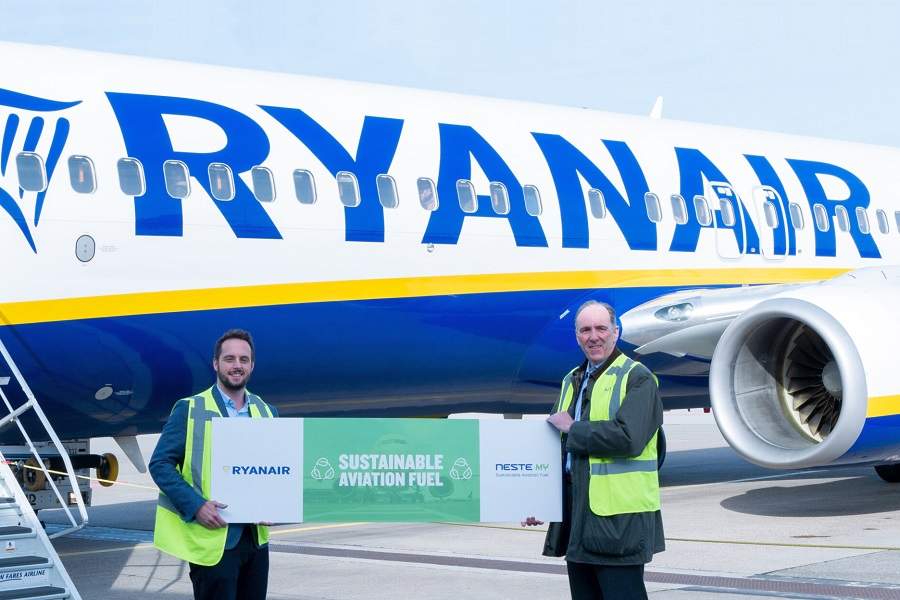
Ryanair has set a goal of operating 12.5% of its flights using SAF by 2030. This is a more aggressive goal than those of other airlines today. Several airlines today boast of being the greenest, with Ryanair being one of them. The operator’s investment of $22 billion on new 737-8200 aircraft alone is responsible for 16% lower CO2 emissions, per seat.
Neste is a sustainable aviation fuel supplier, that started out in Europe. But the company now has operations in the United States and elsewhere. This latest agreement with Ryanair will see it getting SAF in Amsterdam Schiphol (EHAM). According to the airline, this will see its greenhouse gas emissions go down by over 60%.
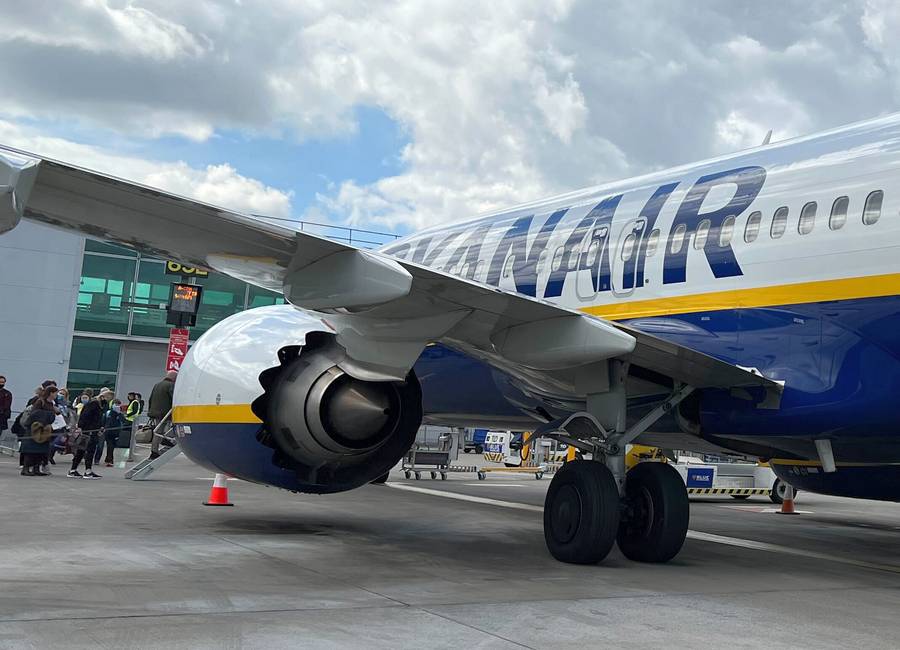
SAF – The Challenges For Ryanair And Others
At the moment, manufacturers have certified their aircraft and engines to operate with up to 50% SAF fuel blends. But Airbus, Boeing and ATR have tested their aircraft with 100% SAF. These manufacturers have a goal of certifying their current aircraft with 100% by the end of the decade. However, the adoption of SAF is more a fuel technology/supply problem, and less an aircraft/engine tech problem.
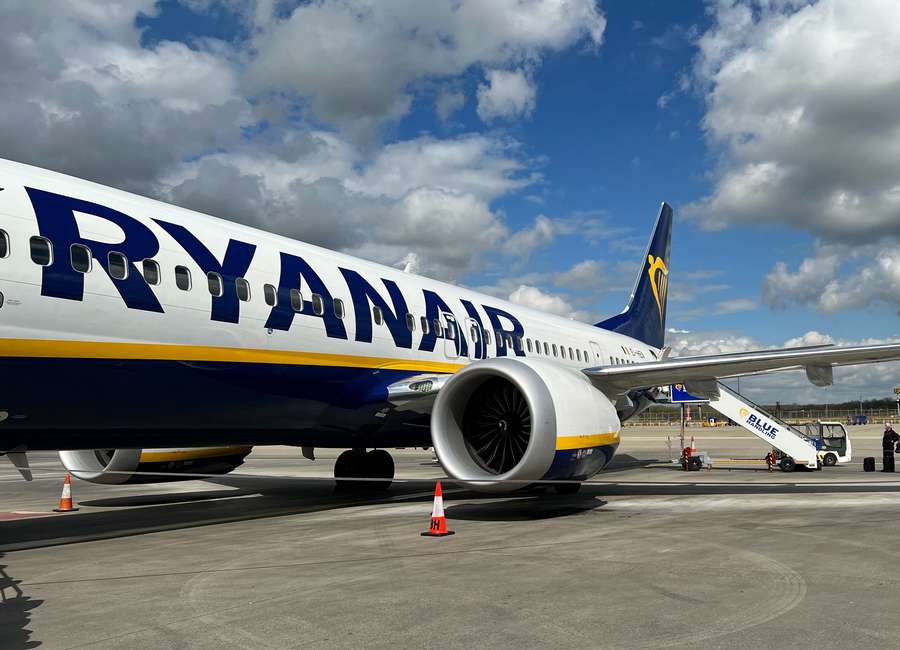
SAF is still quite expensive to manufacture, which has to be a factor for Ryanair and all other airlines. European legislation will make a minimum amount of SAF per flight mandatory, in ever-increasing amounts. But there is some debate on the matter. In general, airlines are in favour of the idea, but some argue that there should be exceptions for long-haul.
Short/medium-haul operators like easyJet, Ryanair, Wizz Air and others disagree, arguing that SAF will be more crucial for long-haul in the longer term. This is because solutions like hydrogen could become an option for short-haul operations. But realistically, long-haul will have to rely on SAF. However, European long-haul operators complain that this would put them at a disadvantage against non-EU operators.
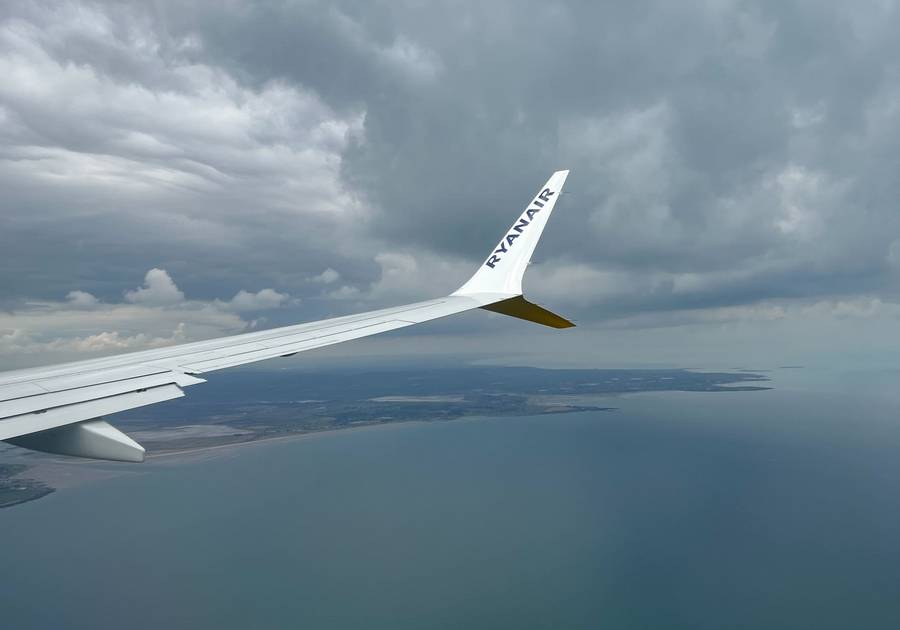
Rules, Supply And Testing
For now, it is difficult to see if it will be possible to apply such rules fairly, worldwide. But there are other obstacles to sustainable aviation fuels, beyond price. Not all feedstocks for SAF scale up to high volumes of production as easily. For Ryanair and others to reach their SAF goals, other technologies will be necessary. Solutions like carbon-capture offer unlimited supply – in theory. But for now, these solutions seem to come at an even higher cost.
On the aircraft/engine side, developments are already very encouraging. We recently saw United get special permission to fly passengers with 100% SAF – on one of its engines. Obviously, the airline got a special dispensation to do so. This is still an important step, in searching for any operational differences between the fuels. But testing the long-term effects of these fuels will take some time.
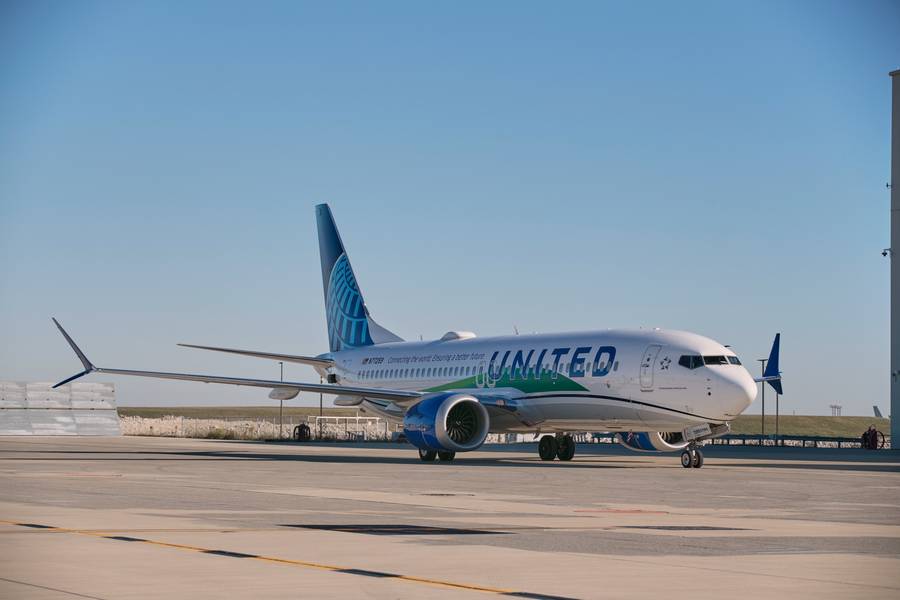
From its side, Ryanair’s Director of Sustainability, Thomas Fowler, said this about its deal with Neste:
“We are delighted to announce this landmark deal with Neste which will see Ryanair uplift this new 40% SAF blend. SAF is a cornerstone of our Pathway to Net Zero by 2050 decarbonisation strategy and this new blend will power a third of Ryanair flights at Amsterdam Airport Schiphol while reducing greenhouse gas emissions by over 60%. We look forward to growing our partnership with Neste as we work toward achieving our goal of operating 12.5% of Ryanair flights with SAF by 2030.”



